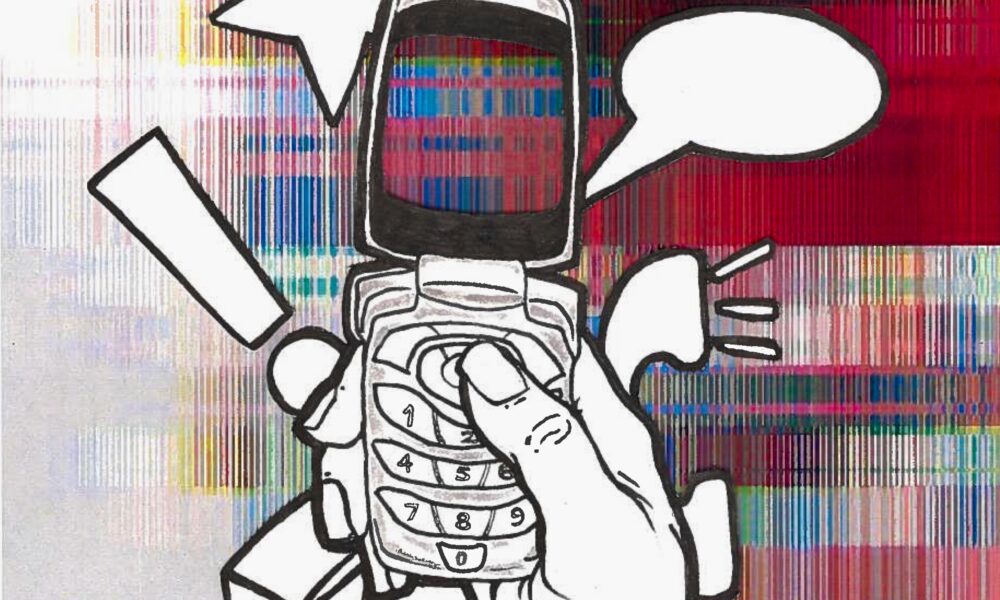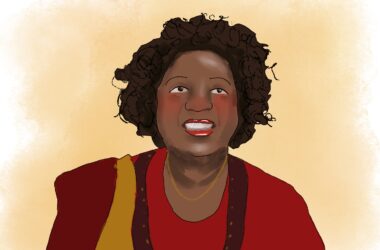Smartphones have become indispensable tools in everyday life, making it easier to stay connected, navigate unfamiliar places, scan menus effortlessly, and access QR codes at events. However, that convenience comes at a high cost. Increasingly, research correlates anxiety, depression, and inattentiveness with smartphone use. As such, some young people are refusing to be dominated by the alluring grip of the smartphone by instead returning to flip phones—and they are experiencing wonderful results. If you are feeling overwhelmed with the constant stimulation of the 21st century and want to simplify your life, start using a flip phone.
Having a flip phone helps instill helpful technology habits. Many individuals report a healthier relationship toward technology after switching to a flip phone, even if the switch itself is not permanent. For example, people report relying on Google less often and texting people less compulsively, as it is incredibly tedious to type on a flip phone. These limitations foster a sense of mindfulness. People realize that it is unnecessary to google every question that arises in their minds, that there are certain things which are best left unanswered, and that if something is truly important, they will remember to google it on their laptop once they get home. Similarly, people are more careful regarding the things they share with their friends over text, and become comfortable with the idea of not being constantly up to date with everyone else’s lives. On the contrary, having a smartphone makes us feel like everything is important and worthy of our attention, because there are no limits to what we can do or learn with such devices. In turn, that leaves individuals unfocused and anxious about not keeping up with everything that’s going on in the digital world.
Most importantly, a flip phone fosters a deep and carefully sustained attention to the world that surrounds us. Having a smartphone is akin to having the “One Ring” from Lord of the Rings. On one hand, it presents us with an alluring promise—it can make our lives better, more efficient, more convenient, and more entertaining. But like the One Ring, the smartphone has but one purpose in mind: To capture our attention and keep us perpetually hooked to the stimulation. Regardless of how useful a smartphone can be, its attractive promise deviates our attention from the seemingly simple, yet important things in the real world. This constant stimulation in our pockets prevents us from doing things such as stopping and smelling a beautiful flower, listening to the birds chirping on a summer evening, or even enjoying the company of our friends by giving them our undivided attention. Conversely, a boring old-fashioned flip phone parallels a bowl of zucchini pasta. It’s a healthier alternative, but there’s less of a tendency to gorge down a whole bowl since it’s simply not as good as the real deal. In this way, users don’t find themselves reaching for their flip phones as much, and instead can appreciate the constantly fleeting beauty of the external world.
In addition to developing a deep sense of appreciation for things outside of ourselves, flip phones make us feel much less overwhelmed since they narrow down the number of choices that are available to us. In The Bell Jar by Sylvia Plath, the character of Esther succinctly describes the jarring experience of the paradox of choice by using a fig-tree analogy. Esther, an English honours student living in the 1950s, is stressed about all the possible turns her future could take. As such, she imagines a big fig tree, with each fig representing one of the many turns her life could take. She could become a professor, a poet, a writer, or a multitude of other things. That paradox still haunts us in the 21st century, but smartphones and social media have intensified it by creating the illusion of limitless possibilities. In contrast, a flip phone serves as a reminder of our human limitations, stripping away the excess and allowing us to reclaim a sense of clarity amidst the noise.









